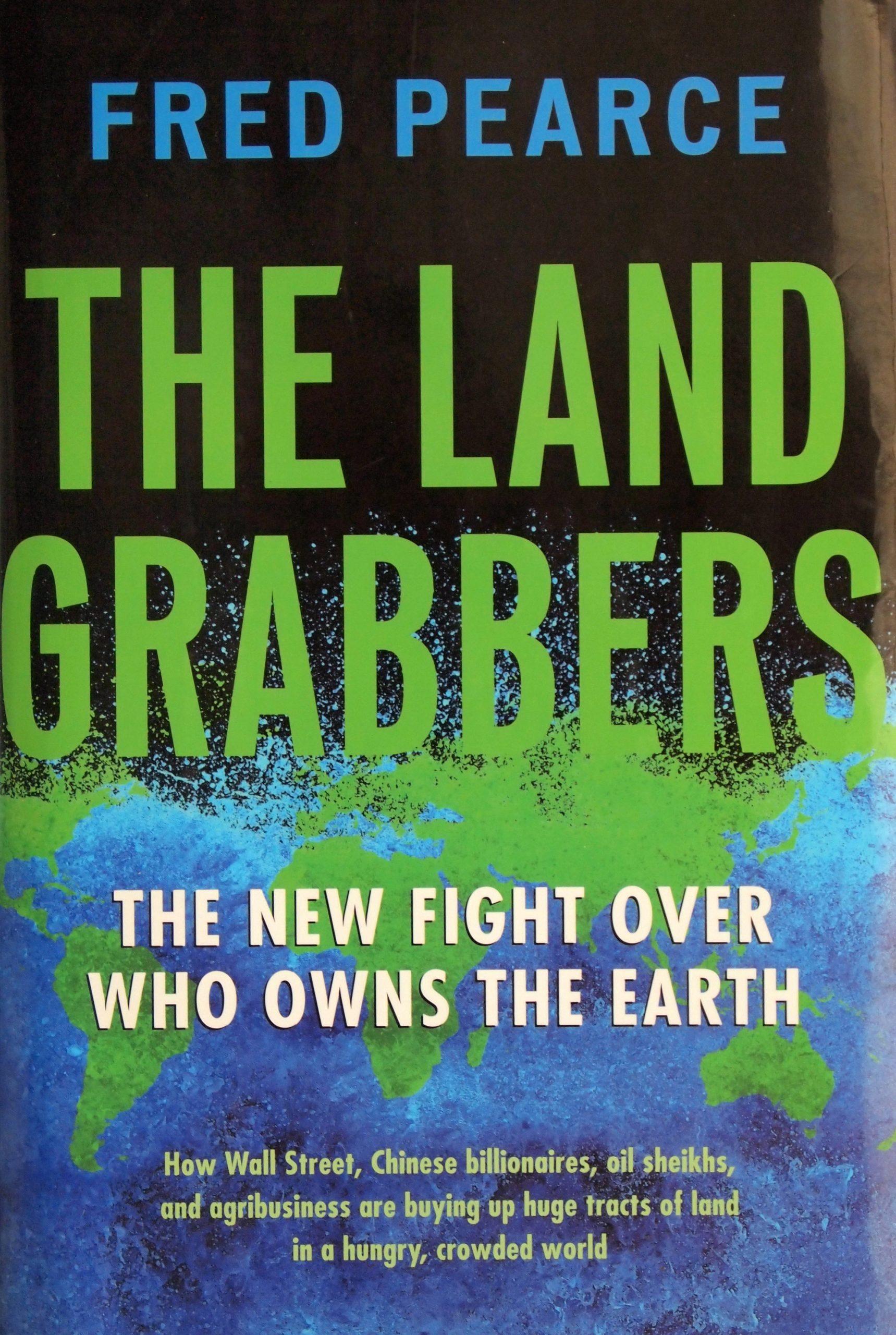Chinese, oil sheiks, multinationals, yes even conservationists are doing it: buying land from under unknowing people for their own purposes. These days, land isn’t fought over anymore – it is simply sold.
This is the kind of book that makes you wonder: why haven’t I heard from this before? Well, the truth may be quite simply because no news agency bothers to send out its troops all over the world to report on it. Fred Pearce is very much his own man and courageous enough to travel through Nigeria, Paraguay and Papua New Guinea to traditionally report what he encounters.
The thing is this: you might think we’re in crisis and all short of cash. That’s because you’re in Europe. Elsewhere there are lots and lots of money sloshing around in search of a profitable destination. And as investors are avid newspaper readers, they know the world population is on the rise, wealth is improving and thus the appetite of people in upcoming economies is changing and increasing. And they have read about the European targets on biofuels, resulting in a steady and increasing demand. What it boils down to is: hunger for land – be it for agriculture, cattle or biofuel.
And so oil sheiks buy up land in Africa, as do Russian oligarchs, Chinese investors, western pension funds and agribusiness multinationals. What typically happens is that the investor strikes a deal with someone in the office who sells or leases the property to which he usually has no rights. It’s often unclaimed land on which nomads live, people herding their cows in the traditional African way, on people that pass by with the seasons. The land is then cleared, with an interesting bonus from the timber sales, burnt clean and prepared for whatever crop they have in mind. Often it’s palm oil, but it may be anything from rubber to banana’s. People who used to pass over the land are held back. Migrating with the seasons no longer an option, they often succumb to a boring and badly-paid job at the plantation. This may go an for years. But eventually something usually goes awry: people start to rebel, crops are less fruitful than expected, the ground water gets depleted or the local mill cannot be filled to capacity. End of story often is that the investor pulls out, taking his loss. But the largest loss in terms of forest, wildlife, culture, quality of life is for those who remain.
Such is the refrain of Land Grabbers, a shocking book that shows in detail how global capitalism has reached the ends of the earth and almost always unhinges the life it meets. (JW)
Pearce, Fred: The Land Grabbers, Beacon Press, Boston, 2012, 236 pages, hard cover, € 25,-



Comments are closed.